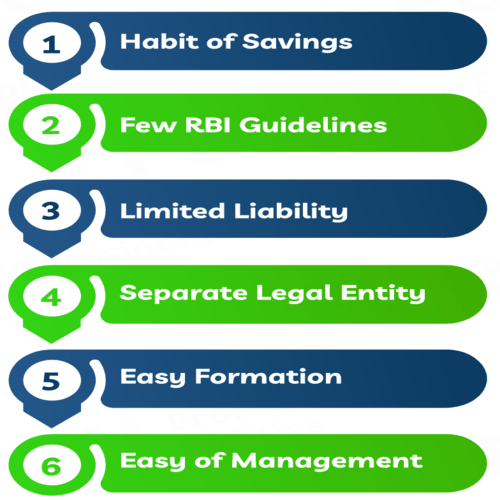Most of the investment companies in India cater to a large amount of money, whereas banks provide very little scope for growth in savings. Nidhi Company provides the most effective and easy way to save your money with a wide scope of monetary growth. It is a type of public limited company and is governed by the Companies Act, 2013. Get to know the benefits, process, requirements and fees of Nidhi company registration.
Nidhi companies play a significant role in promoting financial inclusion and providing access to credit in rural and semi-urban areas of India, especially for individuals who may not have access to formal banking services. However, they must operate within the regulatory framework set by the government to ensure the protection of members' interests and financial stability.
Nidhi Company -Incorporation Certificate [sample]

Nidhi Company is a type of Non-Banking Financial Company (NBFC) . Its major function is lending and borrowing money to its members. The objective is to cultivate the habit of savings amongst its members and work on the principle of mutual benefits that are regulated by the Ministry of Corporate Affairs.
Nidhi Company is not required to receive the license from Reserve Bank of India (RBI), hence it is very easy and convenient to form. It is also known as Mutual Benefit Finance Company. It is registered as a public limited company and must include “Nidhi Limited” as the last words of its name.

The sole objective of Nidhi company is to promote the culture of savings among its members.
Nidhi company falls under NBFC category, but it does not require approval of Reserve Bank of India.
As per the Companies Act, 2013, directors and shareholders have limited liability. If the company suffers any losses or issues, personal assets of the directors and shareholders are secure.
Nidhi Company is a separate legal entity which means it can acquire assets and incur debts on its own name.
The process of Nidhi company formation is very simple and easy. There are very few requirements compared to other NBFCs.
Even though Nidhi Company is an NBFC, it is very easy to manage and make changes in the organization.

Post incorporation of Nidhi company, you’ll receive the following documents:


As Nidhi companies are involved in a non-banking financial transaction, they are prohibited from performing the following activities: